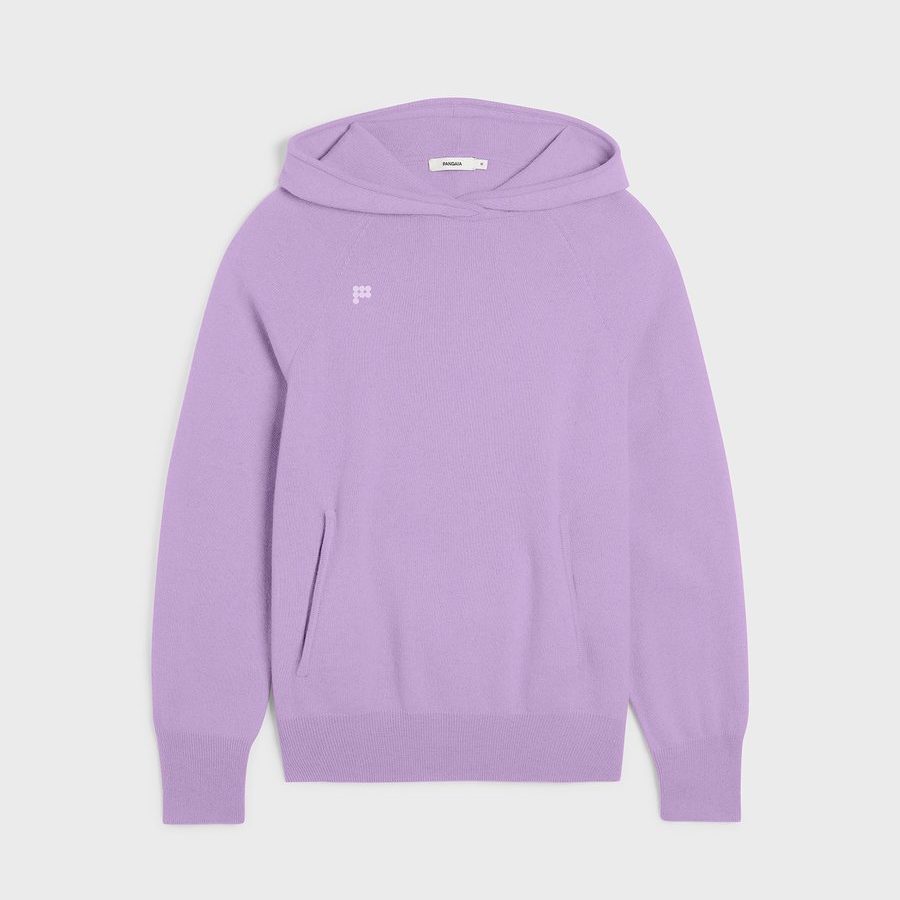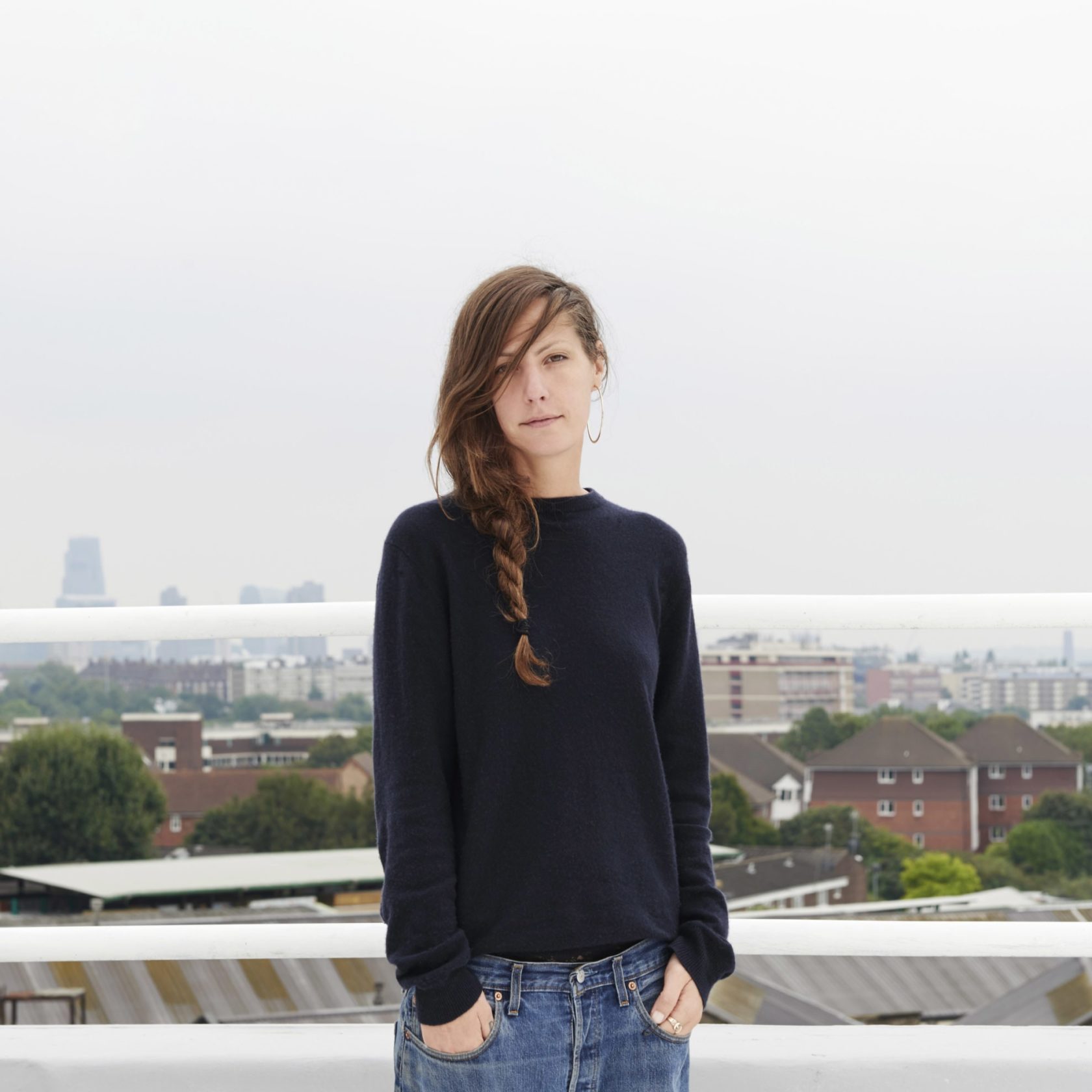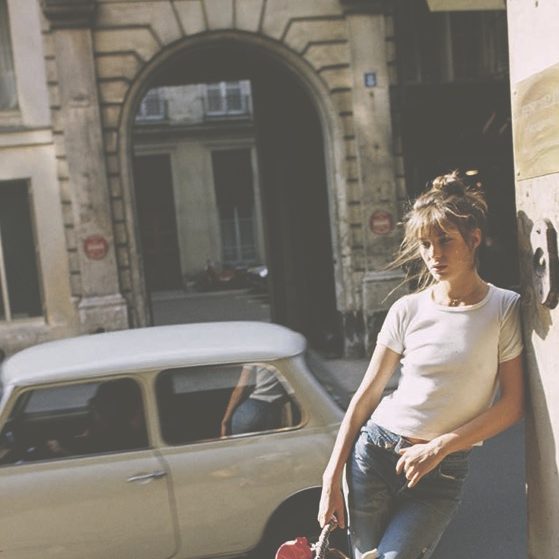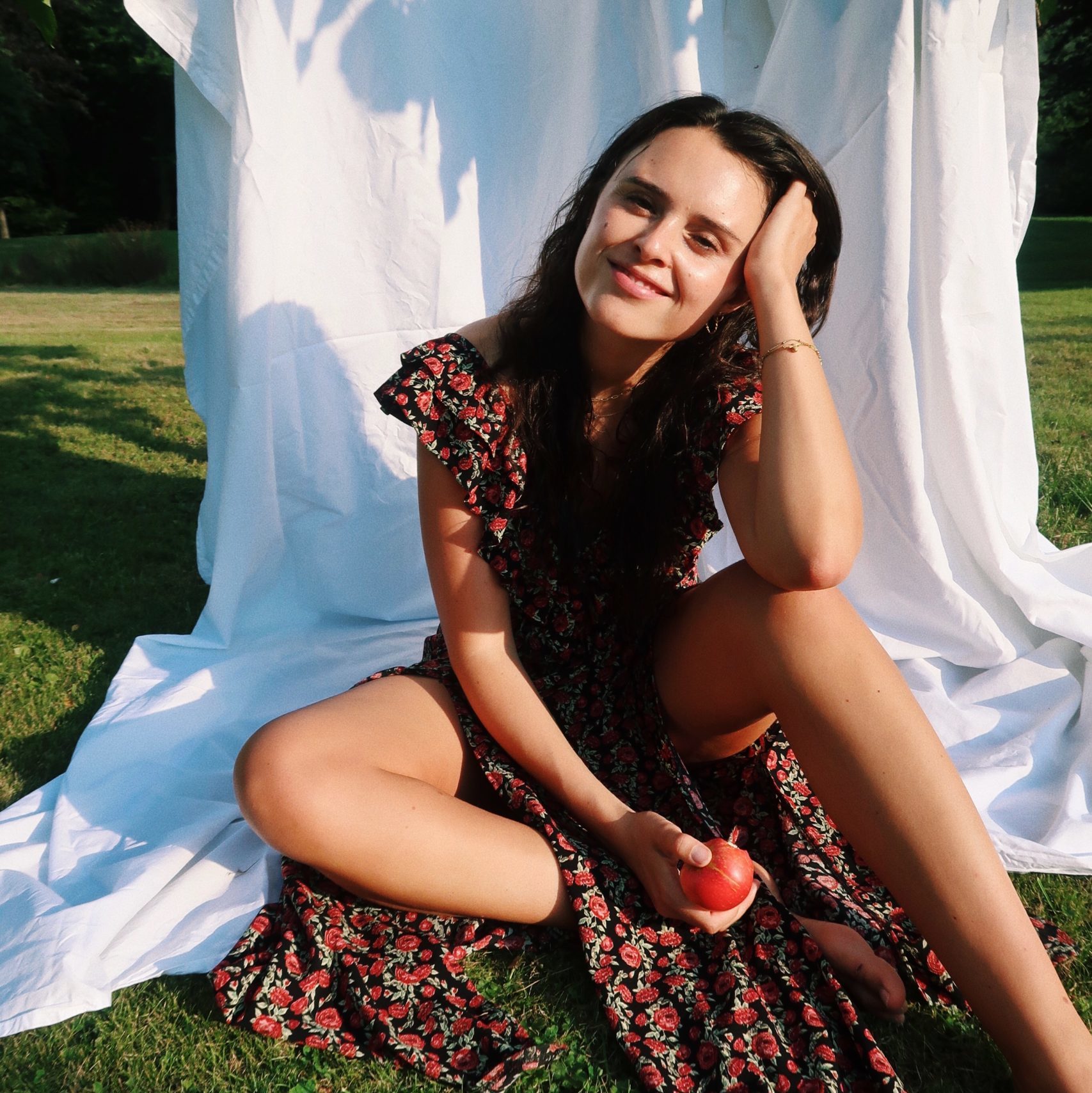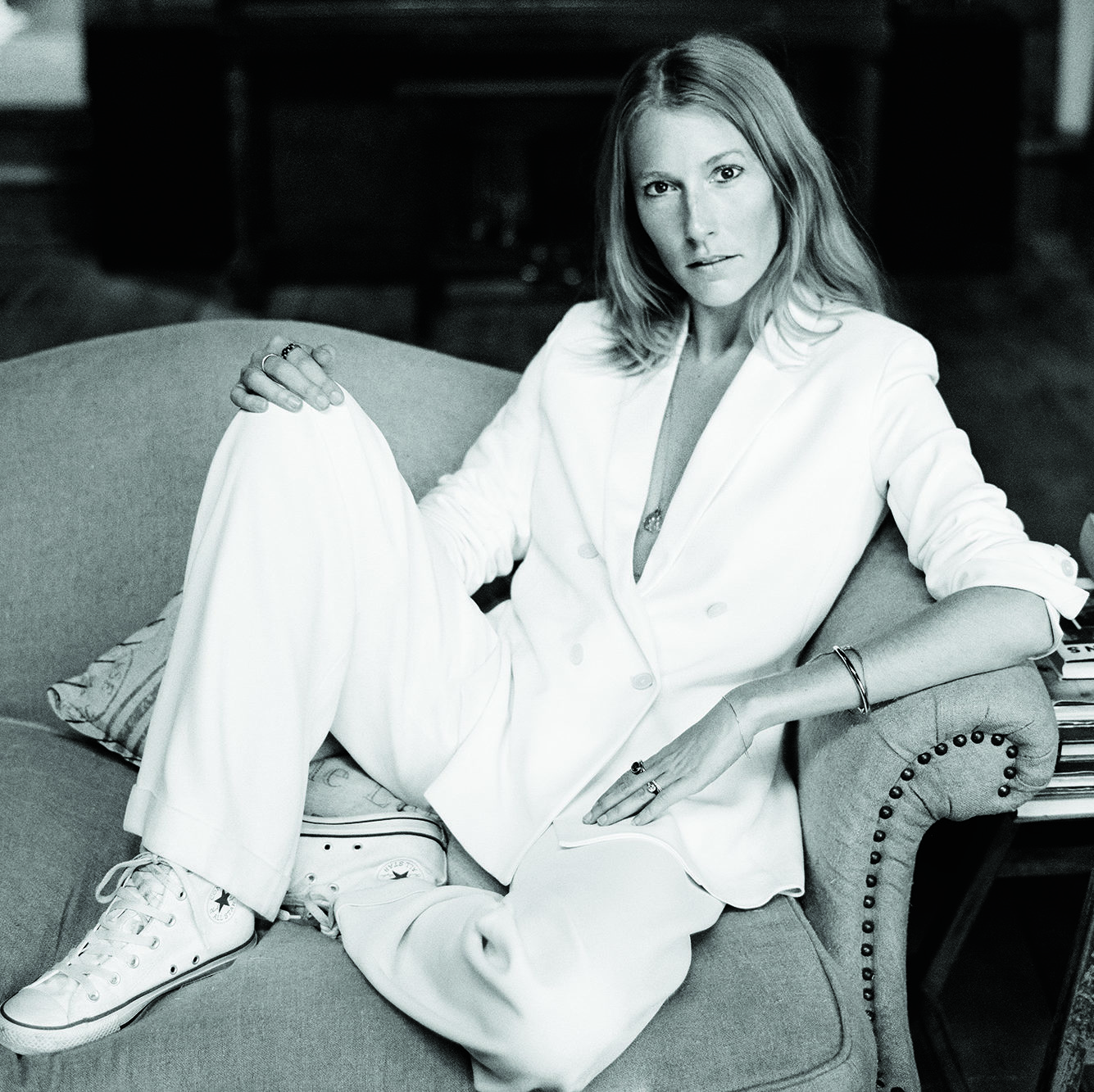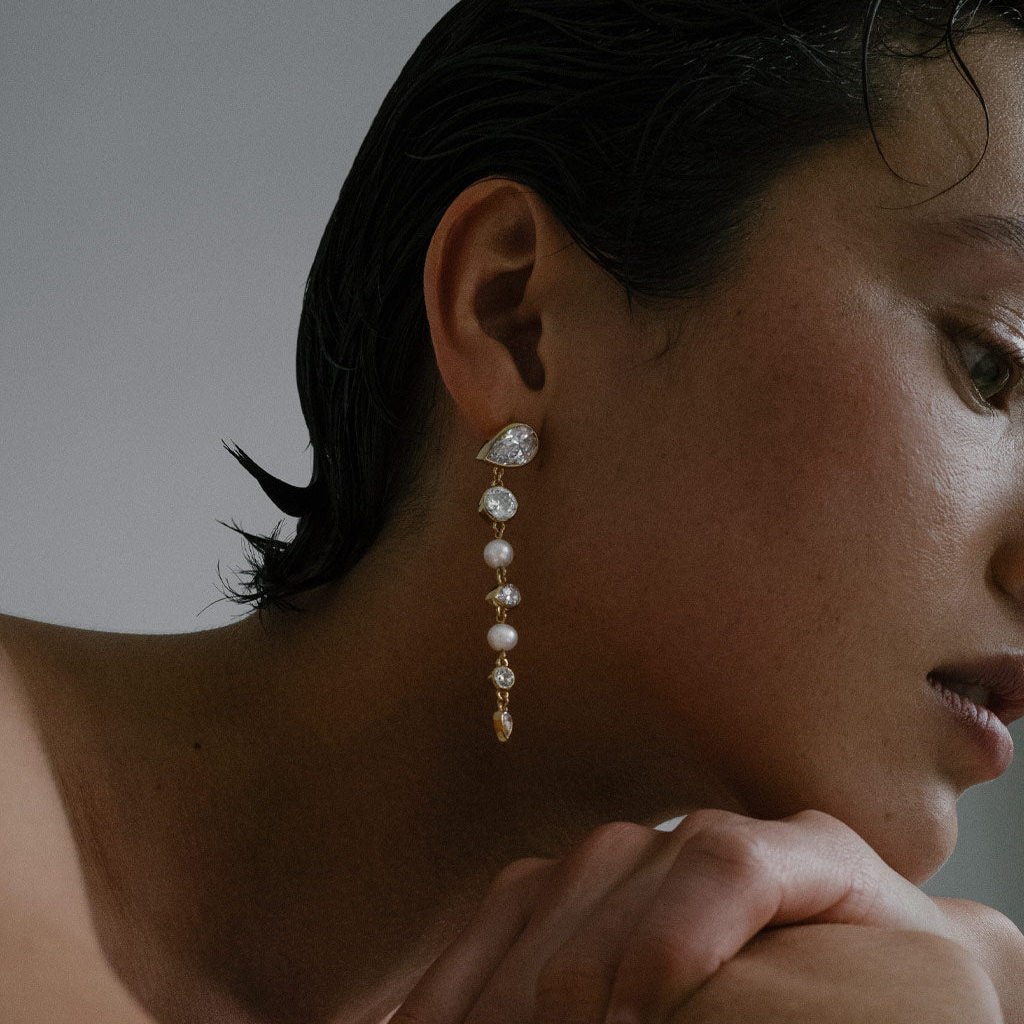The Calendar Profile
Eva Kruse: “If you can change fashion, you can change everything”
Eva Kruse, the trailblazing executive of PANGAIA, tells Calendar about her radical upbringing in Denmark, surprising early career in youth TV and where she aims to make an impact in 2022
Sarah BaileyThere are very few humans whose charisma manages to shine through the clunky awkwardness of a remote video call. However, Eva Kruse, trailblazing executive at the fashion-meets-material-science company Pangaia – who’s talking to me today via Zoom from her sitting room in Denmark – is one such human. Although I’ve known Kruse for many years and watched her 2013 TEDxCopenhagen talk ‘Changing The World Through Fashion’ more than once, I was not previously aware of an interesting chapter at the start of her CV, which may explain her cut-through on a video call. She started her professional career aged just 20 as a TV presenter, first on a youth debate show, then later on a fashion programme. “It was at a time when MTV was a big deal,” she says with a smile, “so the Nordic countries created their own version of MTV called ZTV.”
A powerful voice in sustainability, through her pioneering work as Chief Executive of Global Fashion Agenda (with its flagship event the Copenhagen Fashion Summit), Kruse joined Pangaia as Senior Vice President for Impact in March this year. This ingenious science-meets-fashion brand is both a direct-to-consumer business and a revolutionary industry resource. It sells cool, sustainable athleisurewear in just-so cuts (see its chromatically zinging Instagram feed featuring J.Lo in an ice-blue tracksuit and Harry Styles in a fuschia hoodie), as well as creating extraordinarily innovative products, utilising cutting-edge materials science. A bucket hat printed with ink made from upcycled traffic pollution, you say? You’ve got it. Or maybe a pair of shades made from air carbon? Ditto. “We have over 300 blends and fibres that are an open platform, an open source for other companies, so the industry transformation that we can accelerate by helping other companies become more sustainable is super, super exciting,” says Kruse.
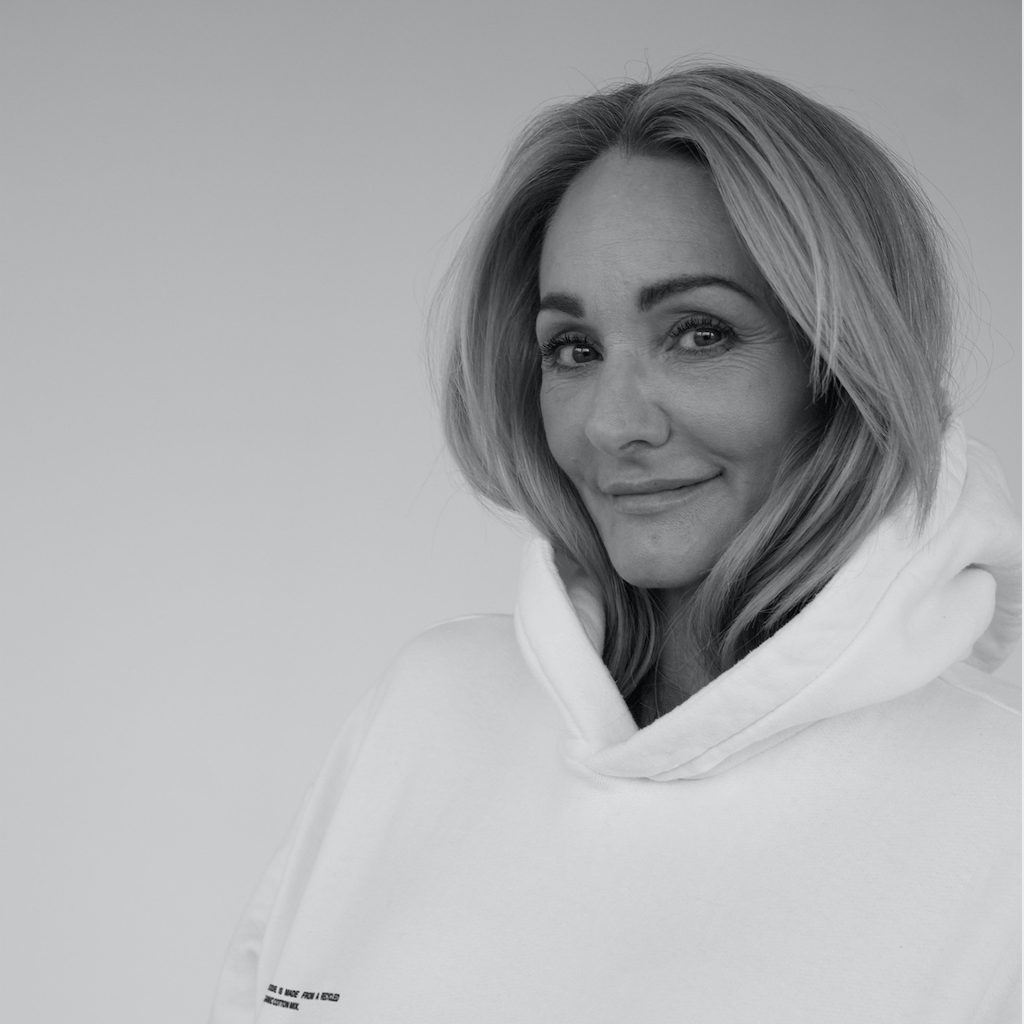
Eva Kruse of Pangaia
Leaving the Global Fashion Agenda, which she co-founded in 2005 (it was formerly called The Danish Fashion Institute) was a wrench, of course. However, meeting Miroslava Duma, the powerhouse entrepreneur behind Pangaia and Future Tech Lab (a venture capital fund specialising in sustainability) was a kismet moment. “All the pieces in the puzzle sort of fell into their place… We became friends and found common vision and alliances,” says Kruse. “She’s a force of nature!” Snap.
Brought up by radical parents in Aarhus (Denmark’s second-largest city), Kruse was destined to make a difference. Her socialist father trained as an architect, but practises as an agit-prop artist, while her staunchly feminist mother is also a lifelong activist, who runs a cooperative arts hub. “They are both very active on a global and local level. Their last big project was painting a big mural in Havana.”
Kruse describes an expansive, bohemian childhood, where their home might be shared by Vietnamese refugees for several months and attending anti-nuclear demonstrations was non-negotiable. Kruse says it was hard to rebel against such progressive parents. Take the time she went through a phase of dying her hair black and wearing military camo. “They were just like, ‘Yeah, great expression!’,” she laughs. The only crime was to be inactive. “I remember saying to my dad when I was 13 or 14, ‘What does it matter if I go on a march?’ and he replied, ‘What if everybody said that?’. So I marched.”
“We don’t want to encourage over-consumption. We hope people buy exactly what they need and really love”
Eva Kruse
Her leap from protest marches to the heart of the Copenhagen fashion scene came about by chance. Kruse was studying to be a project leader at a progressive business school called KaosPilots, when she happened to be spotted by TV producers and given a screen test. This led to her first gig as a TV presenter on the Danish broadcasting network. And from here, Kruse – who was both a vibrant communicator and a quick study – eventually parlayed her media profile into a five-year stint as Editor-in-Chief of Danish fashion magazine Eurowoman.
This was the early noughties, a moment of exponential growth, not to mention a certain mood of decadence in fashion. “In the magazine, we were all Gucci, Gucci, Gucci!” she recalls. But after giving birth to her second child in 2002, Kruse says she started struggling with her own sense of purpose. She considered retraining to become a doctor and even began studying with that aim. But another TV job came calling and Kruse left her studies, and as it happens, her first husband.
She had a new partner in her life (a fashion veteran, from whom she has since separated), and the pair started talking about how they could organise the Danish fashion community in Copenhagen, start a local fashion week, and run forums that could raise the industry to compete dynamically on a global stage. From the get-go sustainability was key, although not everyone in the local fashion scene saw it that way. Kruse recalls inviting fashion leaders to an inaugural closed-door meeting at the Royal Opera House in Copenhagen in 2005, “Since 2007 we hosted the first seminars and meetings on CSR, and they were basically telling me to shut up and put a lid on it, because they had very little visibility to the tiers of their supply chain,” she recalls.
But of course, she persisted. Kruse and her group ran more closed-door meetings, brought in experts, and started digging for research. “We were searching and scraping everywhere for data because there weren’t any surveys or data, even just on water, chemicals, carbon…” Happily, there were other global changemakers thinking along the same lines. In 2006, Al Gore’s eye-opening documentary An Inconvenient Truth was released and Vanity Fair ran its first green issue. A forum to speak to the world about ethics, sustainability and transparency in fashion felt increasingly relevant and with COP15 – the UN Global Climate Change Conference – coming to Denmark in 2009, Kruse saw the opportunity to launch the Copenhagen Fashion Summit, as an official side event to the UN gathering.
“We have some exciting plans to launch a huge global campaign on biodiversity… We won’t solve the climate crisis if we don’t take care of nature”
Eva Kruse
As a measure of how fraught the green agenda was for the fashion industry back in 2009, Kruse tells me that many of the corporate spokespeople who attended were too nervous to speak. However, there were notable bold-faced attendees who did take the stage, among them the legendary consultant Julie Gilhart (then head of fashion at Barneys New York) and Laurent Claquin, then Sustainability lead of PPR Group, now Head of Kering Americas. Today, the summit is the world’s leading business event on sustainability in fashion, attended by over a thousand executives.
Given everything Kruse has learned about the impact of fashion on the planet in the past 15 or so years, I am curious to know if she ever feels a personal conflict about continuing in the industry? “No, never,” she replies without hesitation. “I also think you want to be where you can make improvements. I’ve always said that if you can change fashion, you can change everything. Name an issue – fashion has it! And it’s also one of the biggest industries in the world and one of the most resource intensive – so any change, even small ones has massive impact. It’s probably one of the hardest industries to change, because if you look at the way it’s structured, throughout the supply chain and the set-up of the business modes, it’s quite like a dinosaur… But if fashion changes, it has ripple effects into the rest of society, because it’s such a culture-dominating industry… So, if we make it cool to behave more consciously, not as a passive trend, but actually something that has substance, it is very powerful. It’s about appreciating that fashion is a very hierarchical system, where a few are leading the rest. But if we can get to those few – and the volume drivers – then we can really make an impact.”
Looking ahead, what are her plans and ambitions for 2022? Kruse says that there is a huge global campaign on biodiversity incoming. “With a lot of other brands from food, apparel and beauty. The nature agenda needs to be the next big wave… We won’t solve the climate crisis if we don’t take care of nature. And that means the land, our oceans and forests… We’re using bees and other pollinators as the pin-ups for the conversation.”
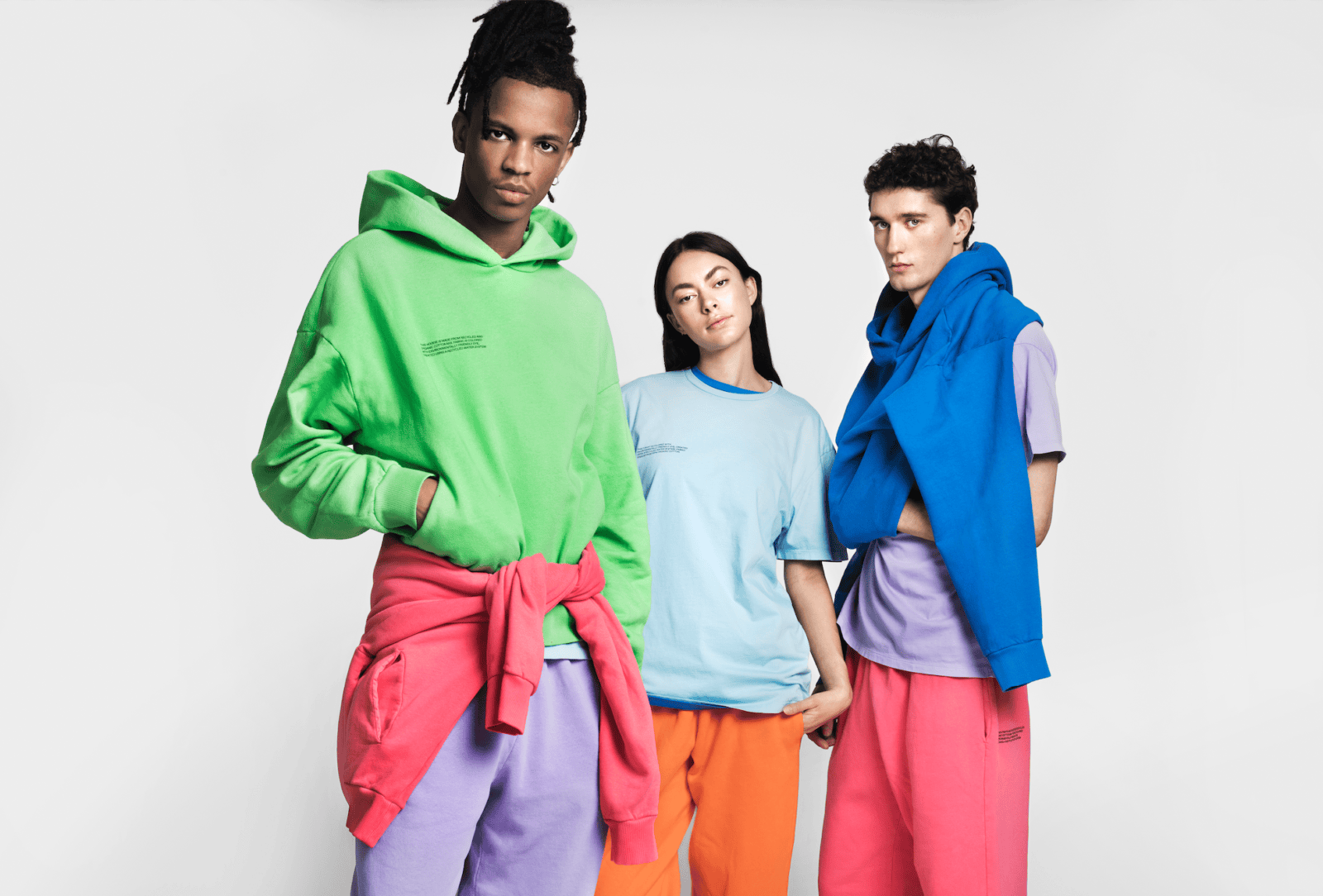
Image courtesy of Pangaia
And she is unashamedly punchy about growing the Pangaia retail business. “The aim is to eat as much market share as we can with the product we have!” She has seen no decline in our appetite for cool, well-cut athleisure amongst customers. “Even as the world opened up and everybody thought we were going to be in pencil skirts and high heels,” she says with a smile. “Really, I do not miss the pencil skirts.” Having said all that, she knows the brand needs to strike an intelligent conversation with its community, not encourage over-consumption. “We hope people buy exactly what they need and really love. The good thing about most of what we put out is that it’s quite generic, right? It never goes out of style.”
On a personal note, Kruse’s family life is also shifting. She remarried in recent years and is now the mother of three children, with ages stretching from 23 to four years old. Now, as her 19-year-old middle child is preparing to leave home in the not-too-distant future, she is contemplating a possible move to London, where Pangaia is based, with her husband and youngest child. “I’m excited, maybe, let’s see,” she smiles. “I want to get Pangaia out into the global community. I’m thinking about that whole industry transformation; how do we accelerate change outside of what we do as a business? That’s what is really exciting.”
World, watch out.
